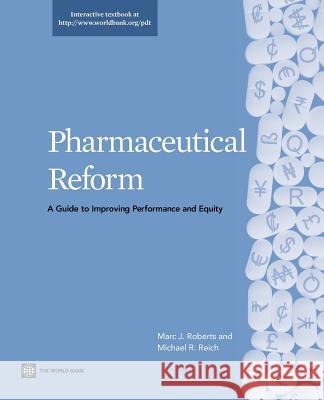Pharmaceutical Reform: A Guide to Improving Performance and Equity » książka
Pharmaceutical Reform: A Guide to Improving Performance and Equity
ISBN-13: 9780821387603 / Angielski / Miękka / 2011 / 332 str.
This book applies an established analytical framework for health sector reform (Getting Health Reform Right, Oxford, 2004) to the performance problems of the pharmaceutical sector. The book is divided into three sections. The first section presents the basic ideas for analysis. It begins by insisting that reform start with a clear understanding of the performance deficiencies of the current system. Like all priority setting in the public sector, this 'definition of the problem' involves both ethical choices and political processes. Early chapters explain the foundations of these ideas and apply them to the pharmaceutical sector. The relationship of ultimate outcomes (like health status or risk protection) to classic health systems concepts like efficiency, access and quality is also explored. The last chapter in the first part is devoted to 'diagnosis'--explaining how to move from the definition of a problem to an understanding of how the functioning of the system produces the undesirable outcomes in question. The second part of the book devotes one chapter to each of five 'control knobs': finance, payment, organization, regulation and persuasion. These are sets of potential interventions that governments can use to improve pharmaceutical sector performance. Each chapter presents basic concepts and discusses examples of reform options. Throughout we provide 'conditional guidance'--avoiding the approach of a 'one size fits all' model of 'best practices' in these five arenas for reform. Instead we stress the need for local knowledge of political systems, administrative capacities, community values and market conditions in order to design pharmaceutical sector policies appropriate to a country's particular circumstances. The last part of the book is a set of teaching cases. Each is preceded by questions and is followed by a brief note on the lessons to be learned. The goal is to help readers develop the skills they need to deal effectively with pharmaceutical sector reform problems in their own countries.











